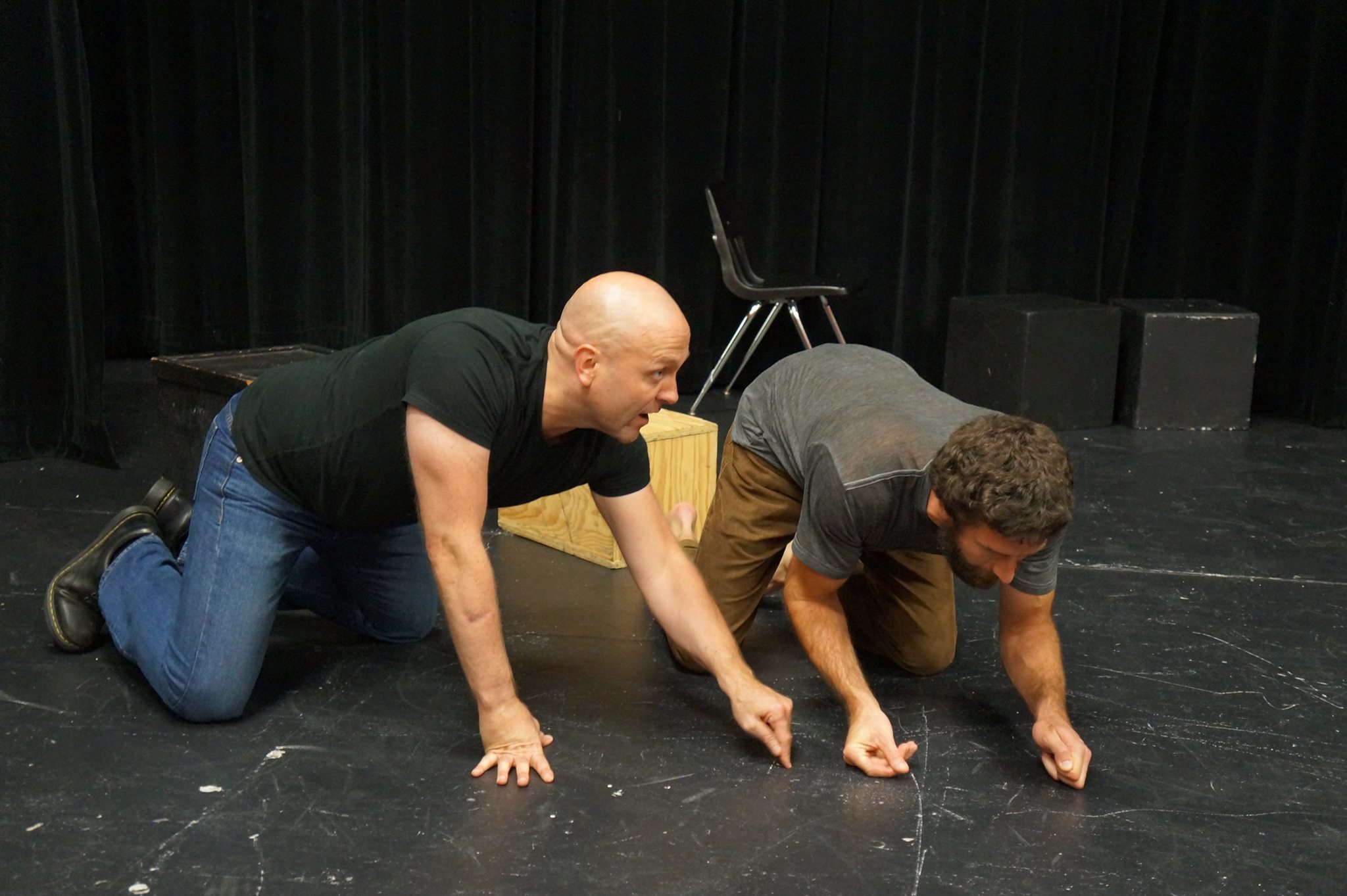When he died in 1837, at just 23, German playwright Georg Büchner hadn’t completed Woyzeck, but he left enough to tantalize theater fans ever since with its daring and prescient examination of the theme of the individual vs. society. Its bitter condemnation of the power-holding institutions of its day (though it doesn’t find much to admire in the lower classes either) could have been written a century later, or more; if you read the script without knowing its origin, you might guess Brecht, Odets, or somewhere in post-revolutionary Russia.
Boosting the play’s reputation is the expressionist opera Alban Berg made of it (premiered in 1925), and similarly Daniel Tarker, adapter/director of Seattle Theatre Works’ current production, realized that the skeleton Büchner left yearns to be fleshed out with sound. Manual noises of all kinds—clapping, tapping, slapping—run as an obsessive undercurrent throughout this 90-minute one-act, evoking or directly representing a ticking clock, a heartbeat, marching soldiers, tavern dance music, the ominous hostility of an angry mob, even the encroaching madness of Woyzeck himself, a regimental barber abused by one authority figure after another and—as a result, posits Büchner—driven to a horrifying murder. With Tarker’s focused, audience-trusting storytelling style, the obvious contemporary parallels don’t require italicizing and don’t get any. This sonic leitmotif is deployed to gripping effect, and has the further advantage of holding together and propelling an episodic and enigmatic script; it’s incidental music, really, a sort of score, and is enhanced by sound effects produced onstage. (Michael Owcharuk is credited as sound and music designer.)
In the title role, Chris Mayse triumphs in his journey from Everyman to monster. Calling his Woyzeck “sympathetic” would imply a sentimentality that is no part of Büchner’s vision, but the point—dehumanizing treatment makes people inhumane—is made without whitewashing away the character’s culpability. Nothing’s that simple. As his murder victim Marie, Stephanie Graham still has an ingenue mannerism or two to shake off, but rises to the challenge of a death scene both harrowing and poetic. Büchner’s antagonists are more symbols than people, but Steven Sterne (the Doctor), Peter Cook (the Captain), and Mike Gilson (the Drum Major), all vividly menacing and darkly comic, do a lot with what they’re given.
Stage One Theater, North Seattle College, seattletheatreworks.org. $10–$25. Ends Oct. 1.








